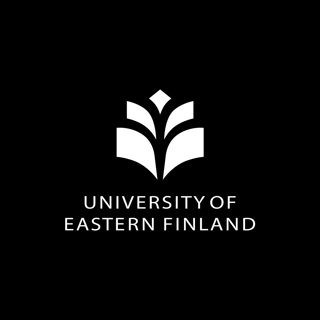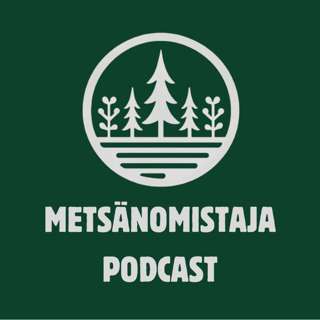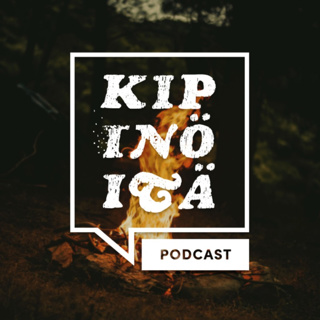
Game changers
Nations are racing to protect 30% of the planet by 2030 in an attempt to halt biodiversity loss, but one novel approach may be able to safeguard species under threat of imminent extinction. Vic visited Nature’s Safe in May, a cryogenic biobank, storing the genetic information of at risk species in futuristic biological freezers. But will it serve as a viable tool to bring wildlife back from the brink if the ecosystems in which these animals reside are degraded beyond repair? The Greenland ice sheet is melting, raising global sea level at an alarming rate. Marnie took to the ice with researcher Jason Box in September, and questions how current carbon emissions will influence melting in the future.Gaia revisits UN talks from March that attempted to put in place regulations capable of protecting the marine biodiversity of the high seas. Negotiations were unsuccessful at the time, but further talks have been held since. How much progress has been made?BBC Inside Science is produced in collaboration with the Open University.
26 Tammi 202328min

A Scientifically Superior Christmas Dinner
How many Scientists does it take to cook Christmas dinner? Marnie seeks help from a food scientist, a geneticist, a doctor and a botanist to create the perfect festive feast.
19 Tammi 202328min

Cancer cure, Strep A research and hopes for biodiversity
Base editing is a technique for substituting the building blocks of DNA. It has only been around for a few years, so its use to apparently cure cancer was all the more remarkable, as BBC Health Correspondent James Gallagher tells us.We take a trip down the river Wye with ecologist Steve Ormerod who tells us why the river is a microcosm for some of the global issues being discussed at the UN Biodiversity summit in Montreal. BBC Environment Correspondent Victoria Gill gives us the latest on the state of negotiations there.And the current surge in infections associated with the streptococcus bacteria has led to deaths in a few cases. It is usually a seasonal infection, worse in the spring. We ask microbiologist Dr Claire Turner from Sheffield University why we seem to be seeing a surge of infections now and her research on strep vaccine targets.BBC Inside Science is produced in collaboration with the Open University.
12 Tammi 202327min

Biodiversity
The UN Convention on Biological Diversity summit, currently taking place in Montreal Canada, intends to develop ways of reducing the global loss of biological diversity by drawing up a series of international commitments to help humanity to live more harmoniously with nature. The scientific evidence paints a grim picture of species decline and extinction, pollution and destruction of natural habitats. The aim of the meeting is to find ways to stop and even reverse such decline. We meet leading figures involved in the negotiations, including:Elizabeth Mrema, the Executive Secretary of the UN Convention on Biological DiversityInger Andersen Executive Director of UN Environment ProgrammeIndigenous leaders Viviana Figueroa and Lakpa Nuri Sherpa And scientists Professor Sandra Diaz from the University of CordobaDr Marla Emery Scientific Advisor with the Norwegian Institute for Nature Research. BBC Inside Science is produced in partnership with the Open University.
5 Tammi 202328min

Killer smog
For a week at the beginning of December 1952, London was under a blanket of deadly smog. As a result, the Clean Air Act came into force a few years later banning smoky sulphurous fuels. However air pollution researchers are now concerned that rising emissions from wood burners may be undoing many of the gains from the Clean Air Act. We hear from Dr Gary Fuller, air pollution scientist at Imperial College London and author of The Invisible Killer, the Rising Global Threat of Air Pollution and How We can Fight Back. We also discuss emissions we can’t see, bacteria and even microplastics which are now present in the air. Catherine Rolph from the Open University tells us where we might find them.And we reveal the winner of the Royal Society Insight Investment Science Book Prize. You can find interviews with all the shortlisted authors in our previous programmes.BBC Inside Science is produced in partnership with the Open University.
29 Joulu 202232min

Science funding
The UK has the opportunity to access European science funding. However disagreements over the Northern Ireland protocol are preventing the UK from joining the multi billion pound Horizon Europe project which funds scientific partnerships between European institutions. BBC Science correspondent Pallab Ghosh has been following developments. Spending time in green spaces has been linked to mental and physical health benefits. But just how green is your nearest city centre? New research has ranked urban centres in the UK based on their ‘greenness’ and Jake Robinson, from Flinders University in Australia, revealed who came out on top. We hear about initiatives to enhance ‘greenness’ including the citizen-science led GroundsWell programme with Elly King, from the University of Liverpool, and living walls with Brenda Parker, at UCL. And from the Royal Society science book prize, we’re talking sex and gender with primatologist Frans De Waal whose new book is entitled Different: What Apes Can Teach Us About Gender.
22 Joulu 202229min

Climate science and politics
As the COP27 environment summit draws to a close we look at some of the issues still to be resolved. BBC Environment correspondents Victoria Gill and Georgina Rannard join us from the meeting. And we head to the houses of parliament in the company of a group of teenagers who are putting their concerns over climate change to a panel of politicians. Julia Ravey went to meet them. We hear from author Nick Davidson about how the discoveries of 3 unlikely characters in the 19th century formed the basis of geological science. His book The Greywacke is shortlisted for the Royal Society Science Book Prize. And a scientific analysis of the Winchcombe meteorite gives us some clues as to the possible origins of life on earth. Natasha Stephen from Plymouth University is one of the many scientists who analysed the composition of the rock fragments.
15 Joulu 202227min

COP27
One key issue on the agenda at the COP27 environment summit in Egypt is how to fund damage from the effects of man made climate change. Often the effects of climate change are felt the strongest in countries least responsible for creating the emissions. This year we’ve seen a range of extreme weather events including drought and flooding which scientists have attributed to man-made climate change. The idea of providing funding for such human-induced disasters has long been discussed informally at COP summits. Finally the issue is formally on the table. It's fraught with diplomatic difficulties, not least over who should pay and how much. We discuss some of the issues in getting a solution on this initiative known as ‘Loss and Damage’ with contributions from Josh Gabbatiss from the website Carbon Brief, Rachel Kyte, the Dean of Tufts University, Linnéa Norlander Assistant Professor of human rights and sustainability at the University of Copenhagen and Hyacinthe Niyitegeka, coordinator of the Loss and Damage Coalition. And we look at methane with Drew Shindell, professor of Climate science at Duke University and Author of the UN Environment Programme’s Global Methane Assessment, who tells us a reduction in methane could give us a quick fix in terms of efforts to stabilise global temperatures.
8 Joulu 202232min





















